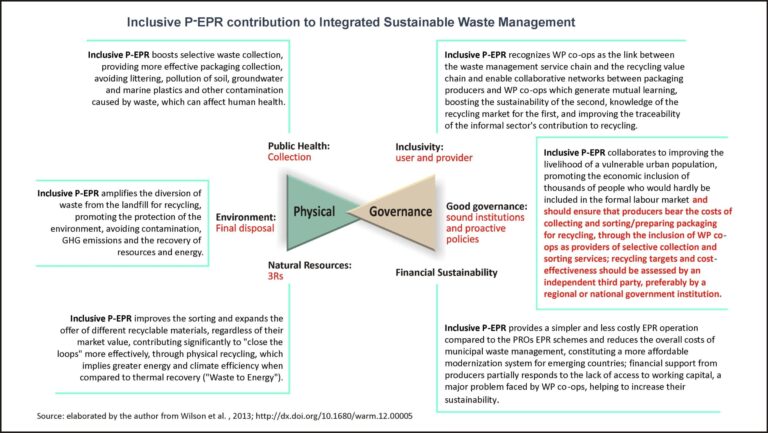Add to favorites:
Share:
Project results are expected to contribute to all of the following expected outcomes:
- New scientific evidence of how bottom-up social entrepreneurship shapes and contributes to the co-creation of neighbourhoods in line with the values of the New European Bauhaus[1].
- Inhabitants (including marginalised and vulnerable groups) and civil society actors share knowledge and experiences and have the capacity to cooperate and engage in bottom-up social entrepreneurship.
- Bottom-up social entrepreneurship increases inhabitants’ quality of life and well-being, fosters social cohesion, and creates new economic impulses and employment opportunities in neighbourhoods.
Bottom-up social entrepreneurship[2] can act as a key driver of sustainable[3] and inclusive[3] neighbourhood co-creation in line with the values of the New European Bauhaus. Bottom-up social entrepreneurship leverages local expertise to tackle local social and environmental challenges. It can generate local economic value, create new and inclusive employment opportunities, leverage cultural and creative industries, and address the segregation of different community and civil society groups, including marginalised and vulnerable inhabitants.
Research is required on the various aspects of using bottom-up social entrepreneurship for the co-creation of neighbourhoods.
Proposals are expected to address all of the following:
- Deliver at least 3 bottom-up social entrepreneurship pilots in at least 3 Member States or Associated Countries to explore how bottom-up social entrepreneurship can shape and contribute to the co-creation of neighbourhoods in line with the values of the New European Bauhaus[3].
- Analyse for each pilot the local social, cultural, economic, financial, regulatory, and legal barriers and drivers and how they can shape the market uptake and competitiveness of bottom-up social enterprises and initiatives.
- Assess for each pilot the business case and the potential for bottom-up social entrepreneurship to create impact and attract (impact) investment opportunities.
- Demonstrate how cooperations between inhabitants and civil society actors can foster the exchange of knowledge and experiences and build their capacity to engage in bottom-up social entrepreneurship. These cooperations should take into consideration place-based specificities and be grounded in strong public-private partnerships including grassroots neighbourhoods associations, public authorities, local businesses, and the social economy, etc.
- Demonstrate how bottom-up social entrepreneurship can increase the quality of life and well-being of inhabitants, strengthen social cohesion, and foster a shared sense of belonging in neighbourhoods.
- Assess how the above may impact future co-creation and decision-making in the development of neighbourhoods in line with the New European Bauhaus.
Proposals are expected to follow a participatory and transdisciplinary approach[6] through the integration of different actors (such as public authorities, local actors from the targeted neighbourhoods, including from the social economy and civil society, investors etc.) and disciplines (such as architecture or design, arts, business, economics, finance, etc.).
This topic requires the effective contribution of SSH disciplines and the involvement of SSH experts, institutions as well as the inclusion of relevant SSH expertise, in order to produce meaningful and significant effects enhancing the societal impact of the related research activities.
Proposals are expected to dedicate at least 0.2% of their total budget to share their intermediate and final results and findings with the Coordination and Support Action 'New European Bauhaus hub for results and impact' (HORIZON-MISS-2024-NEB-01-03).
[1] See definitions in the Glossary section of the NEB part of the HE WP25.
[2] Social entrepreneurship encompasses different formats and types of organisations such as small businesses, collectively owned companies, cooperatives, civil society and community-building initiatives, neighbourhood associations, grassroots initiatives, community land-trusts, etc.
[3] See definition in the Glossary section of the NEB part of the HE WP25.
[4] See definition in the Glossary section of the NEB part of the HE WP25.
[5] See definition in the Glossary section of the NEB part of the HE WP25.
[6] See definition on NEB working principles in the Glossary section of the NEB part of the HE WP25.
Expected Outcome
Project results are expected to contribute to all of the following expected outcomes:
- New scientific evidence of how bottom-up social entrepreneurship shapes and contributes to the co-creation of neighbourhoods in line with the values of the New European Bauhaus[1].
- Inhabitants (including marginalised and vulnerable groups) and civil society actors share knowledge and experiences and have the capacity to cooperate and engage in bottom-up social entrepreneurship.
- Bottom-up social entrepreneurship increases inhabitants’ quality of life and well-being, fosters social cohesion, and creates new economic impulses and employment opportunities in neighbourhoods.
Scope
Bottom-up social entrepreneurship[2] can act as a key driver of sustainable[3] and inclusive[3] neighbourhood co-creation in line with the values of the New European Bauhaus. Bottom-up social entrepreneurship leverages local expertise to tackle local social and environmental challenges. It can generate local economic value, create new and inclusive employment opportunities, leverage cultural and creative industries, and address the segregation of different community and civil society groups, including marginalised and vulnerable inhabitants.
Research is required on the various aspects of using bottom-up social entrepreneurship for the co-creation of neighbourhoods.
Proposals are expected to address all of the following:
- Deliver at least 3 bottom-up social entrepreneurship pilots in at least 3 Member States or Associated Countries to explore how bottom-up social entrepreneurship can shape and contribute to the co-creation of neighbourhoods in line with the values of the New European Bauhaus[3].
- Analyse for each pilot the local social, cultural, economic, financial, regulatory, and legal barriers and drivers and how they can shape the market uptake and competitiveness of bottom-up social enterprises and initiatives.
- Assess for each pilot the business case and the potential for bottom-up social entrepreneurship to create impact and attract (impact) investment opportunities.
- Demonstrate how cooperations between inhabitants and civil society actors can foster the exchange of knowledge and experiences and build their capacity to engage in bottom-up social entrepreneurship. These cooperations should take into consideration place-based specificities and be grounded in strong public-private partnerships including grassroots neighbourhoods associations, public authorities, local businesses, and the social economy, etc.
- Demonstrate how bottom-up social entrepreneurship can increase the quality of life and well-being of inhabitants, strengthen social cohesion, and foster a shared sense of belonging in neighbourhoods.
- Assess how the above may impact future co-creation and decision-making in the development of neighbourhoods in line with the New European Bauhaus.
Proposals are expected to follow a participatory and transdisciplinary approach[6] through the integration of different actors (such as public authorities, local actors from the targeted neighbourhoods, including from the social economy and civil society, investors etc.) and disciplines (such as architecture or design, arts, business, economics, finance, etc.).
This topic requires the effective contribution of SSH disciplines and the involvement of SSH experts, institutions as well as the inclusion of relevant SSH expertise, in order to produce meaningful and significant effects enhancing the societal impact of the related research activities.
Proposals are expected to dedicate at least 0.2% of their total budget to share their intermediate and final results and findings with the Coordination and Support Action 'New European Bauhaus hub for results and impact' (HORIZON-MISS-2024-NEB-01-03).
[1] See definitions in the Glossary section of the NEB part of the HE WP25.
[2] Social entrepreneurship encompasses different formats and types of organisations such as small businesses, collectively owned companies, cooperatives, civil society and community-building initiatives, neighbourhood associations, grassroots initiatives, community land-trusts, etc.
[3] See definition in the Glossary section of the NEB part of the HE WP25.
[4] See definition in the Glossary section of the NEB part of the HE WP25.
[5] See definition in the Glossary section of the NEB part of the HE WP25.
[6] See definition on NEB working principles in the Glossary section of the NEB part of the HE WP25.
Partner Requests
Explore Real Collaboration Opportunities
🔍 As a logged-in member, you now have exclusive access to all active Partner Requests for this Funding Call.
See who’s looking for collaborators, explore exciting project ideas, and discover how others are planning to make an impact.
💡 Use these insights to get inspired—or take the next step and start a request of your own (3 entries for free).
Log in or registrate here for free.
You must be logged in to submit or manage a partner request.
Ask our experts about this call
Connect with the Listing Owner!
💬 Please log in now to send a direct message to our experts and ask your questions. Not a member yet? Sign up for free and start connecting today!
Related Funding and Finance Opportunities
Unlock Exclusive Funding Opportunities!
🔑 Get instant access to tailored funding opportunities that perfectly match your needs. This powerful feature is exclusively available to our premium members—helping you save time, stay ahead of the competition, and secure the right funding faster.
Upgrade to Premium now and never miss an important opportunity again! Already a premium member? Log in here to explore your matches.
Related Innovation Offers
Related Knowledgebase Resources
Discover More with Premium: Related Knowledge Resources
🔒 You’re missing out on expert-curated knowledge specifically matched to this topic. As a Premium member, you gain exclusive access to in-depth articles, guides, and insights that help you make smarter decisions, faster.
Whether you’re preparing a funding proposal, researching a new market, or just need reliable information—our Premium knowledge matches save you hours of research and point you directly to what matters.
Upgrade to Premium now and instantly unlock relevant knowledge tailored to your needs! Already a member? Log in here to view your personalized content.









































